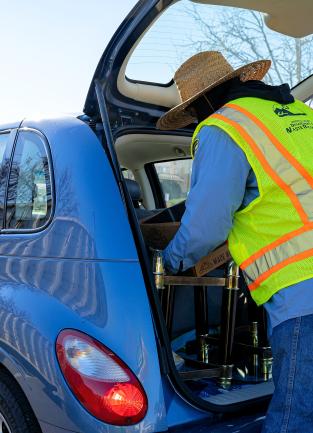Riverside County to launch CARE Act mental health program Oct. 2
September 18, 2023
The Community Assistance, Recovery, and Empowerment (CARE) Act is set to begin in Riverside County Oct. 2.
The CARE Act is a new state law meant to address and treat those with severe mental health disorders by allowing the court to order the county to provide behavioral health treatment in community-based settings. Governor Newsom signed SB 1338 enacting the Community Assistance, Recovery & Empowerment Act (CARE Act), which creates a new pathway to deliver mental health and substance use disorder services to the most severely impaired Californians who often suffer homelessness or incarceration without treatment.
By focusing on a holistic, person-centered approach, CARE Court aims to break the cycle of homelessness and incarceration for these individuals and promote long-term recovery through a court process. This holistic approach seeks to create a safer and healthier community for all residents.
Riverside County is in the first group of counties to implement CARE Act along with the counties of Glenn, Orange, San Diego, Stanislaus, Tuolumne and San Francisco.
“Riverside County’s commitment to behavioral health treatment is unwavering,” said Chair Kevin Jeffries, First District. “While we continue to seek voluntary treatment at all times, this new CARE Court tool may put us in a better position to help more people – those who just may need it the most.”
The goal of the CARE Act program is to prevent those with severe mental health disorders from entering more restrictive conservatorships or incarceration. At the same time, voluntary treatment is always available and preferred to seeking court-ordered treatment options.
For the last year, county teams and the Superior Court have worked in partnership with state agencies, and the Judicial Council of California, to support the successful implementation of this legislation. The CARE Act is a new civil court process that will be collaborative in nature, whereby multiple agencies will work together to provide personalized treatment plans and community-based support services to those that qualify. In Riverside County, CARE Act cases will be part of the probate division of the Superior Court.
Individuals can be referred into the program by a variety of persons, the most typical being a family member, first responder or service provider. The process can start by calling the Riverside University Health System-Behavior Health CARES Line at 800-499-3008. In addition, petitions to Commence CARE Act Proceedings can be filed at any Riverside County Court location, starting October 2, 2023. Petitions may also be electronically filed free of charge via the court’s eSubmit system.
Riverside Superior Court offers self-help services to assist CARE Act petitioners, respondents and families as they navigate the CARE Act process and will also help connect individuals to other available resources in Riverside County.
“The court operates a variety of collaborative court programs in conjunction with county agencies and community-based care providers aimed at addressing the unique needs to specific groups of individuals within our community,” said Riverside County Superior Court Presiding Judge Judith C. Clark. “The CARE Act is one more way in which the court can help to ensure that eligible individuals are provided with the services and support necessary to address their needs. We look forward to working with each of our collaborative county partners to deliver this program to the Riverside County community.”
The CARE Act proceedings will be heard in Department 12 of the Riverside Historic Courthouse, located at 4050 Main Street, Riverside, California, with remote appearances available, Monday through Friday at 1:30 p.m. It should be noted that CARE Act proceedings are confidential and not open to the public.
Riverside County residents who need more information about the CARE Act can call the:
- Court’s Self-Help Legal Services at (951) 274-4499 or (760) 393-2163, or
- County’s CARES Line at (800) 499-3008, or
- Visit the Riverside University Health System website.
- Visit the Superior Court website.
To learn more about CARE Court, please watch the following video.
For frequently asked questions on CARE Court, please click here.





